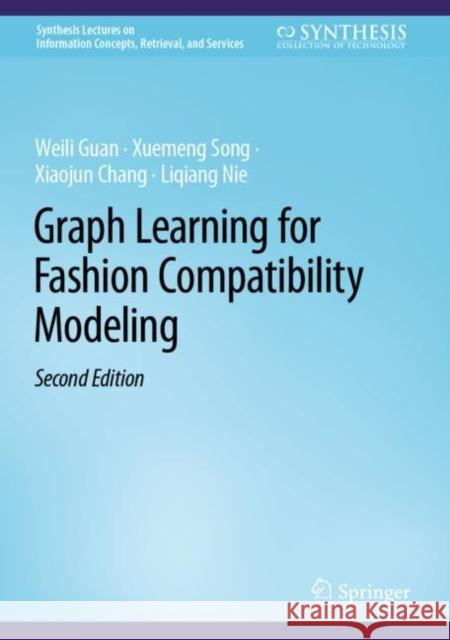Graph Learning for Fashion Compatibility Modeling » książka
Graph Learning for Fashion Compatibility Modeling
ISBN-13: 9783031188169 / Angielski / Twarda / 2022 / 112 str.
Graph Learning for Fashion Compatibility Modeling
ISBN-13: 9783031188169 / Angielski / Twarda / 2022 / 112 str.
(netto: 293,04 VAT: 5%)
Najniższa cena z 30 dni: 306,26 zł
ok. 20 dni roboczych.
Darmowa dostawa!
This book sheds light on state-of-the-art theories for more challenging outfit compatibility modeling scenarios. In particular, this book presents several cutting-edge graph learning techniques that can be used for outfit compatibility modeling. Due to its remarkable economic value, fashion compatibility modeling has gained increasing research attention in recent years. Although great efforts have been dedicated to this research area, previous studies mainly focused on fashion compatibility modeling for outfits that only involved two items and overlooked the fact that each outfit may be composed of a variable number of items. This book develops a series of graph-learning based outfit compatibility modeling schemes, all of which have been proven to be effective over several public real-world datasets. This systematic approach benefits readers by introducing the techniques for compatibility modeling of outfits that involve a variable number of composing items. To deal with the challenging task of outfit compatibility modeling, this book provides comprehensive solutions, including correlation-oriented graph learning, modality-oriented graph learning, unsupervised disentangled graph learning, partially supervised disentangled graph learning, and metapath-guided heterogeneous graph learning. Moreover, this book sheds light on research frontiers that can inspire future research directions for scientists and researchers.
This book sheds light on state-of-the-art theories for more challenging outfit compatibility modeling scenarios. In particular, this book presents several cutting-edge graph learning techniques that can be used for outfit compatibility modeling. Due to its remarkable economic value, fashion compatibility modeling has gained increasing research attention in recent years. Although great efforts have been dedicated to this research area, previous studies mainly focused on fashion compatibility modeling for outfits that only involved two items and overlooked the fact that each outfit may be composed of a variable number of items. This book develops a series of graph-learning based outfit compatibility modeling schemes, all of which have been proven to be effective over several public real-world datasets. This systematic approach benefits readers by introducing the techniques for compatibility modeling of outfits that involve a variable number of composing items. To deal with the challenging task of outfit compatibility modeling, this book provides comprehensive solutions, including correlation-oriented graph learning, modality-oriented graph learning, unsupervised disentangled graph learning, partially supervised disentangled graph learning, and metapath-guided heterogeneous graph learning. Moreover, this book sheds light on research frontiers that can inspire future research directions for scientists and researchers.











